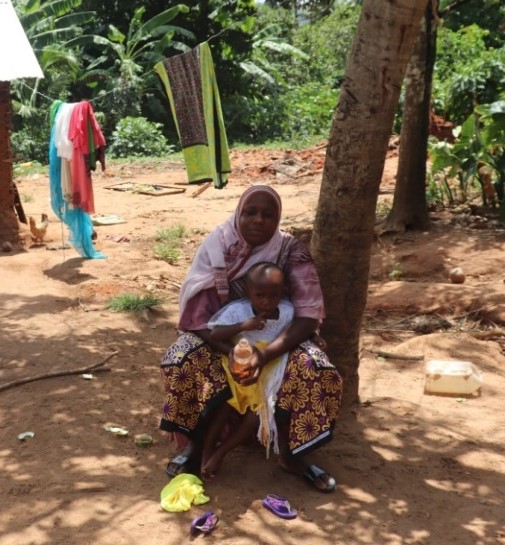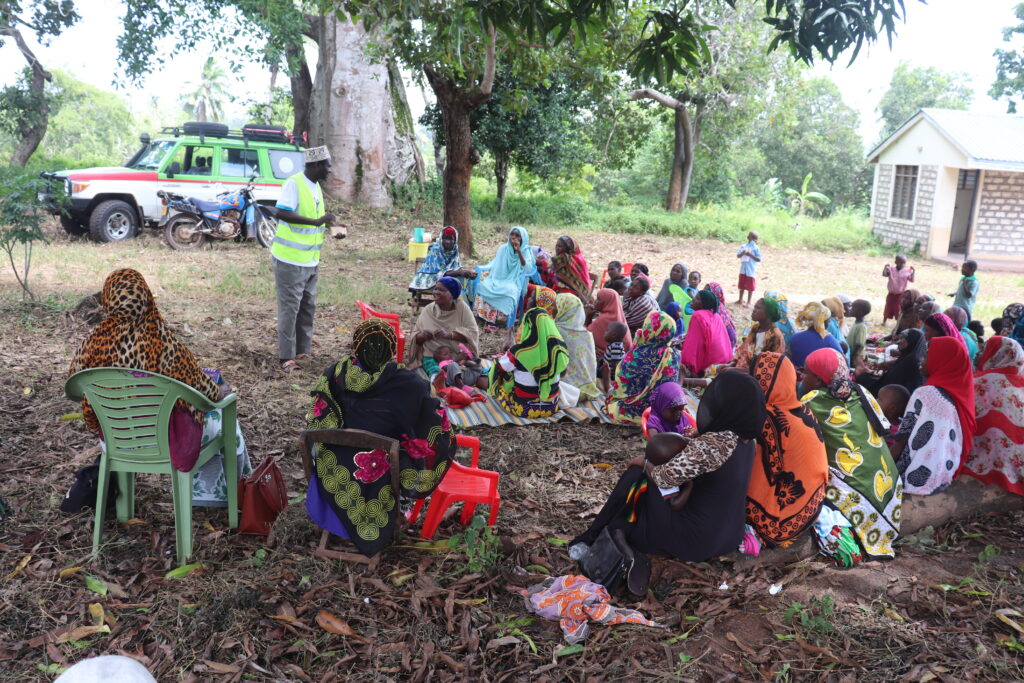Salma Kadama, a 22-year-old mother of three is a resident of Miatsani Village, Kwale County. Salma had all her three children within a span of six (6) years at a time when she knew nothing about child spacing. Her youngest child aged one year is currently enrolled in a feeding programme at Kizibe Dispensary.
Kadama is one among many community members who have been reached by the UKAid-funded Delivering Sustainable and Equitable Increases in Family Planning (DESIP) Programme in Kwale County. Kadama was reached when she attended a community dialogue in Kizibe targeting family planning and other reproductive health needs in November 2019, and has now embraced child spacing and is using a modern contraceptive method.
Embracing Child Spacing
“I have three children and my husband has no job to support a big family. When I attended the dialogue, the village elders, religious leaders and nurses explained the different benefits of family planning methods. I heard about the injection as one of the methods for child spacing. I saw the need to plan my family because I come from a poor background. When I came to the hospital, I asked for the injection.”

Kadama explains that she enrolled for family planning when her youngest baby was 10 months old. She says, “Before embracing the modern method, I used to get pregnant every eight months later followed by miscarriages. I am sure I will now take a break of two years or more. This will help me to take care of this baby and I am hoping to get even healthier.”
Hamisi, the Facility Nurse at Kizibe says, “Family planning uptake has improved since Amref Health Africa began supporting social mobilisation. From the beginning, we had fewer family planning clients but now we have an average of 100 clients a month who have been enrolled on various methods.”
Kadama says she has not experienced any challenges with the method she chose. She was, however, later counselled on all the other available methods by the Facility Nurse but she opted to continue with the injection.
“The Public Health Leader, Community Health Volunteers (CHVs) and Public Health Officers have talked to us about the importance of child spacing. They have even held barazas here in our village explaining to us everything according to our religion. Now we are sure that we are not going against our religion when we accept these child spacing methods,” adds Kadama.
“Family planning knowledge used to be very low as the community thought the health workers were against them having children. Now with social mobilisation, knowledge has increased and people have slowly begun treating family planning as a priority. I thank Amref for coming through. We are now able to reach out to the community and we are observing some changes,” says Hamisi.

The DESIP Programme is implemented through a consortium led by PS Kenya in collaboration with Population Services International (PSI), Amref Health Africa in Kenya, Options Consultancy Services, Faith To Action (F2A) Network, HealthRight International (HRI) and Voluntary Service Overseas (VSO) Kenya.
Targeting poor women and adolescent girls, women under 20 years and people living with disabilities in 19 counties across the country, the anticipated programme impact is a reduction in maternal, new-born and child mortality while increasing more sustainable and equitable access to modern contraceptives.
